Senator Josh Hawley tweeted a Christian Nationalist quote falsely attributed to Patrick Henry that was actually from a 1950s antisemitic and white supremacist magazine. Who cares?
I do obviously...but it's worth being precise about why and how we should care and what this fake quote kerfuffle actually tells us about the American right.
Before I went to bed on July 4 I saw this tweet by Senator Josh Hawley. I thought “that doesn’t sound like 18th century language to me” and indeed, when I clicked through on that community note I saw that those words were not Henry’s but the words of an author in The Virginian (April 1956) that had been excerpted in The American Mercury (November 1956). Hang on a minute, I thought, I know those two publications and uh, wowza, those just aren’t your average 1950’s era periodicals.
The Virginian was a rabidly racist and antisemitic pro-segregation magazine. The American Mercury, founded by H.L. Mencken in the 1920s, had been been sliding down the slippery slope toward ever more antisemitic and fascist content since the early 1950s when it came under new ownership. In 1956, the year they excerpted that piece from The Virginian, the Mercury hired the man who would soon become America’s most notorious Nazi, George Lincoln Rockwell. One of the people who wrote for and helped manage The Virginian in 1956 was Willis Carto, a Holocaust-denying neo-Nazi who would later found the Liberty Lobby and the Institute for Historical Review. So yeah, the provenance of Hawley’s fake Patrick Henry quote looks pretty bad.
I wrote up a quick rambling Twitter thread about it, went to bed, and woke up to a whole lot of commentary about Josh Hawley’s fake Patrick Henry quote. The Kansas City Star referenced my Twitter thread in a brief op-ed and a columnist from the St. Louis Post-Dispatch gave me a call and wrote this op-ed in which he references our conversation. But really, is a fake Patrick Henry line tweeted out by a Senator really worth all of this time and attention? Yes and no.
There’s no debating the vileness of the original source of Hawley’s apocryphal Patrick Henry quote. For example, check out the story that appeared on the same page as the Patrick Henry bit. These segregationists were trying to reclaim Jefferson from their liberal contemporaries who regarded the author of the Declaration of Independence as a flawed but important champion of American egalitarianism. Ackshually, said The Virginian, Jefferson was a proud racist and white supremacist like us, and that’s the essence of his greatness that Americans should remember and celebrate today! And also, they asked, have you ever wondered about the secretive (((cabal))) suppressing these truths about Jefferson and brainwashing our children by preventing them from accurately learning about the founding?
The screamingly racist story below about the excessively “woke” military of the 1950s appeared a few pages earlier in that April 1956 edition of The Virginian. Again, there is no getting around the fact that Hawley’s Patrick Henry quote was produced by people whose white supremacist views would have been considered pretty extreme even in the 1950s.
We might ask, how on earth did this apocryphal quote with such an unsavory origin get on Hawley’s radar? I think there’s zero chance Hawley or any of his staffers was sitting around reading old editions of The American Mercury or The Virginian from 1956 and stumbled upon it. A quick google search revealed that this fake quote from Patrick Henry has been making the rounds in “conservative” and Christian Nationalist circles for decades now. David Barton, the main figure behind the resurgence of a Reagan-era Christian Nationalism that had its more explicitly racist and antisemitic edges sanded off, included that quote in many of his speeches and printed materials. He eventually stopped recirculating it, however, once it became abundantly clear Patrick Henry never said it. That Patrick Henry “quote” also shows up in the 2009 Politically Incorrect Guide to the Founding Fathers, a book I’d bet a few Hawley staffers had on their shelves as young people. [It’s worth pausing for a second to reflect on just how consistently our modern day “originalists” who claim to revere the founders end up recirculating “quotes” those founders never said but which just so happen to square with their modern “conservative” sensibilities.]
Some people online used the original provenance of that Patrick Henry quote to say “aha, here’s proof that Hawley is an antisemitic white nationalist!” This kind of gotcha argumentation based on one data point plays well on social media, of course, but it’s terrible historical thinking. This is not how any of this works.
While the 1956 quote originated in a fascist subculture committed to a Christian Nationalist view of a future US in which non-whites and non-Christians would be either expelled or relegated to second class citizenship, that quote eventually got sucked into other “conservative” subcultures that did not necessarily reject so sharply and explicitly the post-WWII “consensus” that the US is a religiously-pluralistic, multi-racial democracy.
There are harder and softer versions of the sort of Christian Nationalism embodied in Hawley’s fake Patrick Henry quote. The harder vision is the explicitly exclusionary and bigoted version described above, but the softer version goes something like this. “The American political system presumes a citizenry that shares the basic human values articulated in the Ten Commandments and in the Golden Rule. Because Christianity teaches and encourages such values, Christianity has served as an important piece of what it’s meant to be American historically and continues to play that role in our culture and society.” One could criticize that softer version in all sorts of ways, but a contemporary American Christian who agrees with those statements wouldn’t necessarily say that therefore someone who is not Christian or someone who is not white lacks the qualities necessary to be “truly American.”1 This softer version of Christian nationalism is the type most (but certainly not all) Republican elected officials like Marco Rubio or Tim Scott or Nikki Haley or Mike Pence or (probably) Josh Hawley would claim to endorse.
But here’s the problem for folks like Hawley who use the sort of Christian Nationalist rhetoric we see in his fake Patrick Henry quote: regardless of what he intends to be saying when he talks like this, there is a significant number of self-described “conservatives” who will hear the harder version of it and assume that’s what Hawley is endorsing unless he makes it a point to say he’s not. The people in that harder Christian Nationalist camp are the inheritors of a deeply-rooted, long-running political subculture in the US that is opposed to multi-racial democracy and religious pluralism. This subcultural political tradition might also be referred to as America’s version of fascism, a political tradition that I would hope any political leader with a knowledge of history (Hawley was a Stanford History major) would do everything in their power NOT to amplify and stoke.
One increasingly important theme in the historiography of the American Right is that the ideological and organizational line between the “reasonable conservatives” and the “explicitly racist and antisemitic, fascistic far right” has always been pretty fuzzy. People moved across that line (more often in a further rightward direction) all the time from the 1950s up through today. For example, several of the nation’s leading white nationalist “intellectuals” like Peter Brimelow and John Derbyshire got their start as writers for the National Review in the 1990s. The fuzzy line between “conservatism” and “the far right” has enabled the hateful, illiberal fringe—what historian John Huntington has called “The Far Right Vanguard”—to play an important role in setting the agenda and providing fired up activists to staff “the conservative movement.” When viewed in this light, the slippery distinction between harder and softer versions of Christian Nationalism comes to look more like an enabling feature and less like an embarrassing bug for the conservative movement. It’s not that Hawley is being cagey by not explicitly disavowing the quote’s nasty origins or that the quote’s origins don’t matter at all. Rather, this whole kerfuffle is just a repetition of a long running theme in the history of what historian David Austin Walsh has called “The Right Wing Popular Front” in which moderate conservatives, in the name of political expediency, turn a blind eye to the extremists in their midst while those extremists, in the name of political expediency, temper their public rhetoric and tolerate their more normie compatriots in the movement while they wait for them to finally embrace “the truth” as those extremists perceive it.
Over the decades, activists have built momentum for the increasing far right radicalization of the GOP by simultaneously letting illiberal bigots know that the GOP sees them, while also professing to “normies” and the mainstream media that it’s only the softer version of Christian Nationalism they endorse. Depending on the politician, they may even authentically believe in that softer version and revile the harder version, but regardless, the folks who hear the harder version are the ones these days who are more likely to be staffing the Republican Party tables at county fairs or running for precinct captain or serving as county GOP chair or writing for “conservative” media outlets. I think there’s not much use trying to definitively nail down whether it’s the softer version or the harder version that a politician like Hawley actually believes in. Since when have we been able to say with great confidence what any politician truly believes in anyway? The point is that Hawley’s GOP is an evolving coalition of people in both the harder and softer Christian Nationalist camps and which is moving steadily rightward toward a more open embrace of that harder version. This dynamic will likely continue until those who believe the softer version explicitly reject and drive out the growing numbers who believe the harder version.
We can see this interplay between harder and softer Christian Nationalism in one specific line in Hawley’s Christian Nationalist tweet: “It cannot be emphasized too strongly…that this great nation was founded not by ‘religionists’ but by Christians…For this very reason, peoples of other faiths have been afforded asylum, prosperity and freedom of worship here.” That’s some seriously twisted logic there—we are a religiously pluralistic nation precisely BECAUSE we are a Christian nation. I think, however, that we can interpret that 1956 line not as illogic or confusion, but rather as a cynical attempt to build a right wing popular front by giving lip service to the dominant consensus of the time that the US should be an asylum for people of all backgrounds. It would have been hard to openly and publicly advocate a blood and soil, theocratic version of American national identity only 10 years after millions of Americans had risked their lives fighting against the religious and racial bigotry of the Nazis in WWII. I call this statement “lip service” because the rest of the material in The Virginian makes clear that the white Christian supremacists at The Virginian didn’t believe the US should be a religiously pluralistic, multi-racial democracy. Here, for example, is the sales pitch The Virginian made to prospective readers in 1955.
If pressed to publicly defend this racist and antisemitic statement at the time they probably would have said something like “good Jews who respect America’s Christian heritage are fine with us, just as Black people who know their place are fine with us. But those Communistic Jews and the Black people they’ve stirred up to engage in civil rights nonsense are an existential threat to America. There’s nothing antisemitic or racist about standing up for our Christian American heritage!” Needless to say, any Black person or Jewish person who saw The Virginian or The American Mercury sitting on the desk of their employer would know full well what this person thought of them. Likewise, when readers of The Virginian spoke amongst like-minded friends and not in a public journal intended to recruit new readers, there would have been no mistaking what they really thought about Black people and Jews.
This slipperiness about what exact sort of political future these Christian Nationalists envisioned and were working toward is a major theme in my research into Walter Huss. Huss was a regular reader of The American Mercury in the 1950s and 1960s, and he filled the monthly newspaper he published in the early 1960s with excerpts from the Mercury. Most of Huss’s contemporaries perceived him as a zealously religious, conservative anti-Communist “patriot” who wanted to restore America to its traditional cultural roots. As readers of Rightlandia will know, however, Huss was an antisemitic white Christian Nationalist who envisioned a future America purged of Jews and Black people (and later, in the 1970s and 80s he added LGBTQ folks to this list)—not exactly the sort of thing one could say in public in Oregon and expect to find much agreement. But this is what Huss, in his heart of hearts, believed for his entire life; and these hateful bigotries formed a central, animating feature of his political worldview. They were not bugs, they were features. He was a hard Christian Nationalist who was smart enough to pass himself off in public as the soft version of it, and for the most part it worked.
When I say “it worked,” what I mean is that Huss led a successful grassroots far right insurgency that elevated him into the chair of the Oregon GOP in 1978 and which set the state party on an ever more rightward (and thus, electorally disastrous) course that it is still on. Even though he never won an election or contributed to the passage of a single piece of legislation over the course of his 40 year political career, Huss pushed “the conservative movement” and the GOP in Oregon to the right, building an emotionally-compelling, conspiracy-obsessed political culture of aggrieved entitlement around the nucleus of his white Christian supremacist worldview.
There’s a significant difference between a fascist political subculture on one hand, and a fully-formed fascist regime on the other. Just because Huss’s fascistic view of Oregon’s future never came close to being instantiated, that doesn’t mean we shouldn’t call him and many of his supporters and co-workers “fascists” or “fascist-adjacent.” The energies that have produced fascist movements in other countries have long existed in the US. Those American fascist movements like the 2nd KKK, the Silver Shirts, the Minutemen, the Christian Identity movement, the Posse Comitatus movement, the militia movement of the Timothy McVeigh era, and so on (all of which Huss had some connection to, BTW) have caused significant harm to American society, but they have not come close to transforming the nation into a theocratic ethno-state. But that political project was given new life by the Trump presidency, and we are still living inside the long history of the far right grassroots insurgency comprised of people like Walter Huss. Beginning in the early 1960s Walter Huss, like most American fascists, set their sights on the GOP as the institution that they hoped to use to make their racist, anti-democratic and theocratic vision of the US a reality.
That apocryphal Patrick Henry quote emanated out of that fascist subculture aggressively seeking to take over the GOP, and the quote continued to play a role in it for many years after. For example, Hawley’s Patrick Henry “quote” showed up in the 1992 newsletter of the German American National Political Action Committee. This was a neo-Nazi organization run by Hans Schmidt.
Speaking of the fuzzy line between mainstream conservative Republicans and the fascist far right, below is a 1982 letter former Republican Vice President Spiro Agnew, wrote to neo-Nazi Hans Schmidt in which he complained about his unfair treatment at the hands of "organized Jewry" who play up the "so-called Holocaust." So yeah, the idea that elected Republicans have never had ties to the fascist far right is simply untrue, though it would be a gross overstatement to simply say the GOP has been and is today “a fascist party.”
The apocryphal Patrick Henry quote also turns up in a 1993 manifesto that a Christian Nationalist from Southern Oregon sent to Walter Huss when he was a 1994 candidate for governor. [Note also that he includes the exact same JQAdams quote that Hawley used to defend himself after being called out for the Patrick Henry quote.] That person consulted with Huss about possibly running for governor again as an independent in 1998, but he ultimately decided not to when Huss, at the age of 80, stepped up to do it.
In that 1993 manifesto Albertson described himself as a refugee from the Republican Party that had moved too far to the left for his tastes.
Hank Albertson’s statement of political principles in that 1993 text would probably be pretty amenable to your average, Josh Hawley supporting MAGA Republican today. Thus, it should probably not come as a shock to you that Hank Albertson’s Facebook page these days is filled with pro-Trump MAGA memes.
American politics is always a matter of coalitions. Back in the 1990s far right Oregonians like Walter Huss or Hank Albertson or Betty Freauf were fed up with the GHWB Republican Party and were looking for other alternatives. While they were waiting for a figure like Donald Trump to turn up, however, they didn’t just sit around doing nothing. They kept building and feeding a culture of far right extremism, hostile to the projects of religious pluralism and multi-racial democracy, that would serve as the nucleus for the a MAGA movement that would organize and condone an event like the January 6 insurrection. This is why that obscure quote with its fascistic 1956 provenance strikes me as worth talking about.
I’ll leave you with one more echo from the fascistic 1950s. The April 1957 American Mercury (6 months after they had reprinted that Patrick Henry piece Hawley cited) featured this article by George Lincoln Rockwell bemoaning the US's insufficiently manly military. Below are the first and last page. Not every conservative who’s been concerned about the so-called “crisis” of contemporary masculinity and has looked nostalgically back to the days when “men were men” has been a fascist, but this is how virtually every American fascist has talked about American masculinity. Only time (and the decisions he chooses to make) will tell how a political figure like Hawley will be categorized by future historians of American politics.
I grew up in a small town in Central Pennsylvania in the Reagan era. My family was one of only two Jewish families in the town, and I’d say a significant portion (if not a majority) of my classmates were raised in families that endorsed the softer version of Christian Nationalism. If you’d proposed to them that Jews like Seth and his family are part of a secret conspiracy to destroy your church and the United States of America, they would have looked at you like you had two heads. It’s been sad to see some (and I emphasize, only some) of those former classmates get sucked down the MAGA rabbit hole in which obsessively hating George Soros and “globalists”and “the Marxist Democrats who want to destroy America” has become a major preoccupation. As any of history’s past authoritarians could tell you, propaganda is a powerful weapon and can make people think, feel, and act in all sorts of ways they wouldn’t have otherwise.




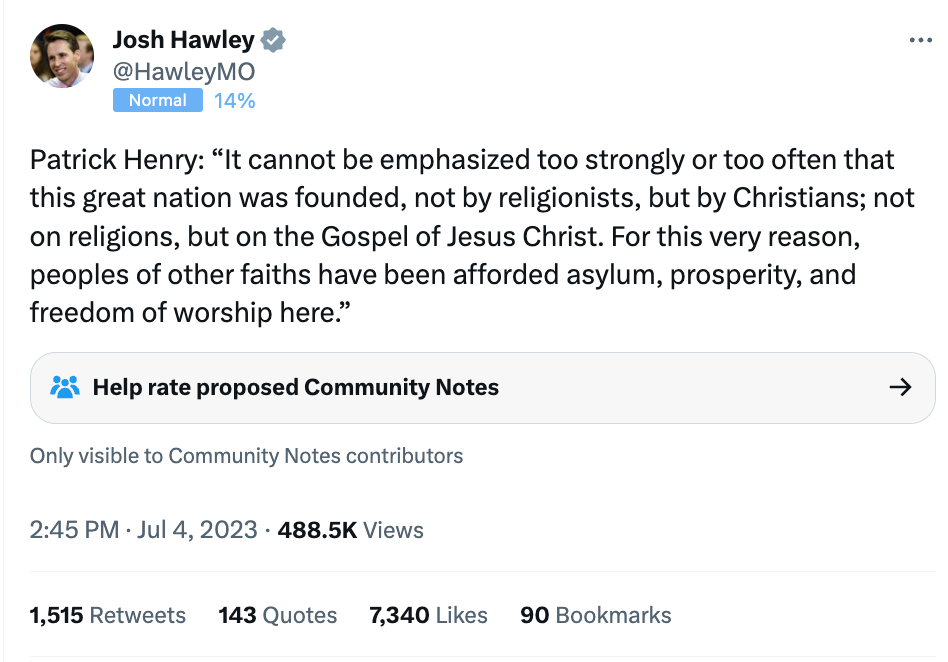
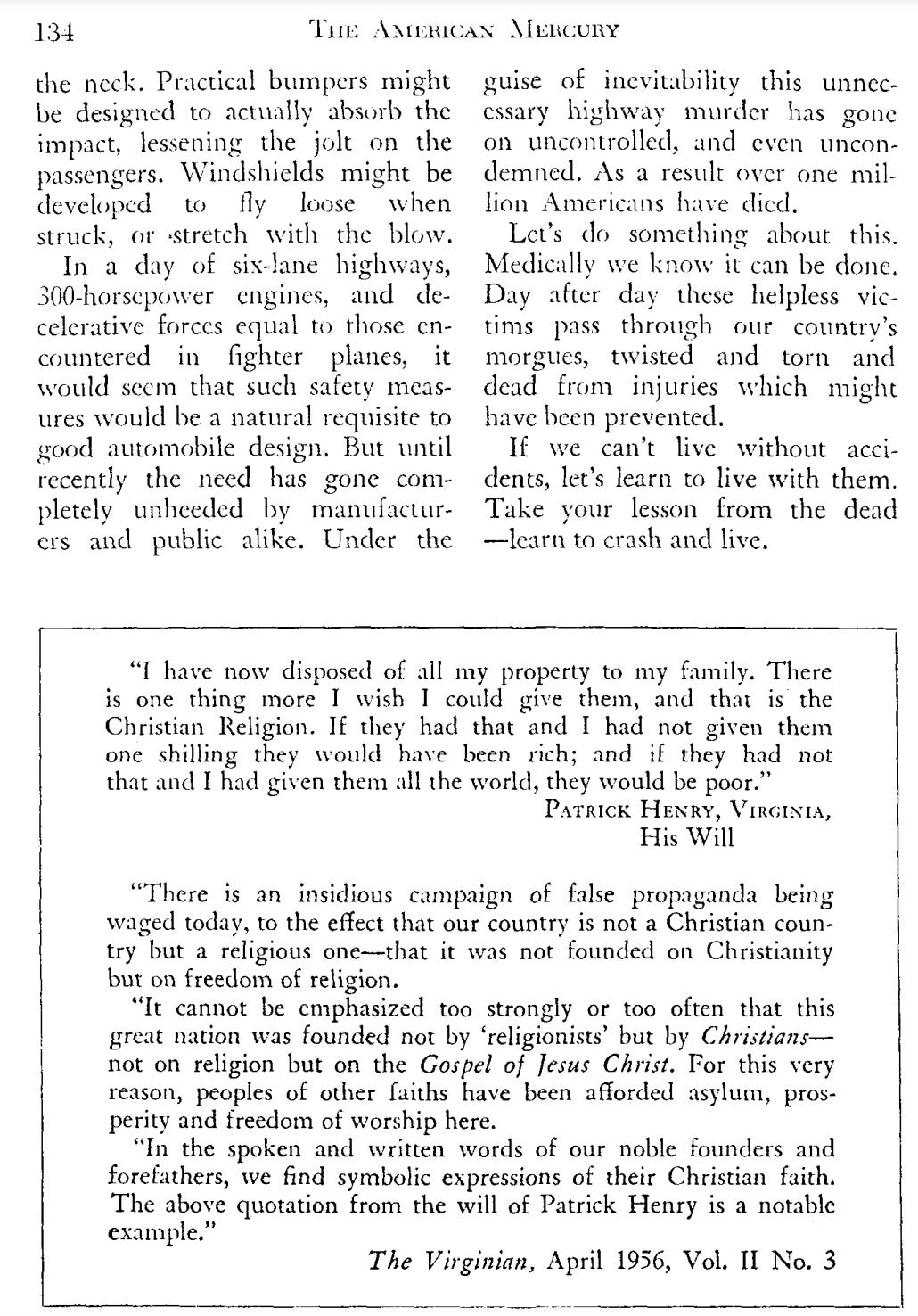
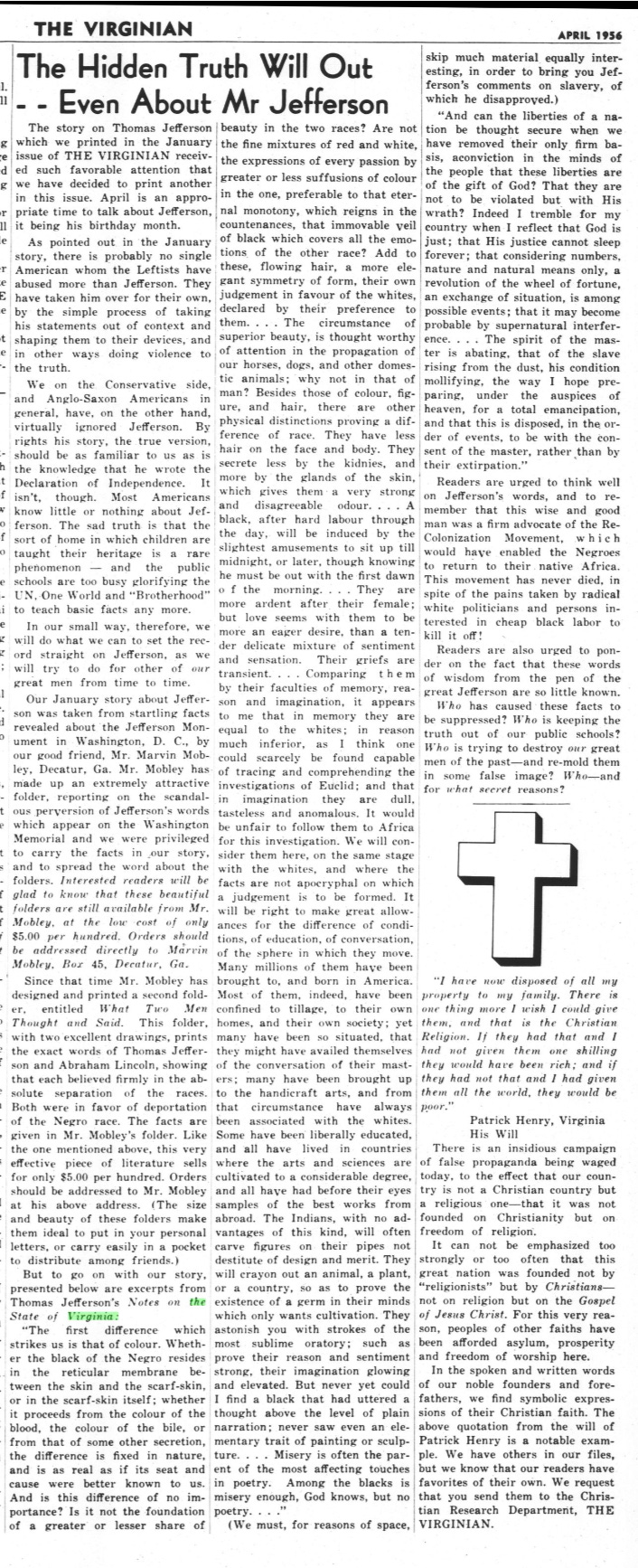
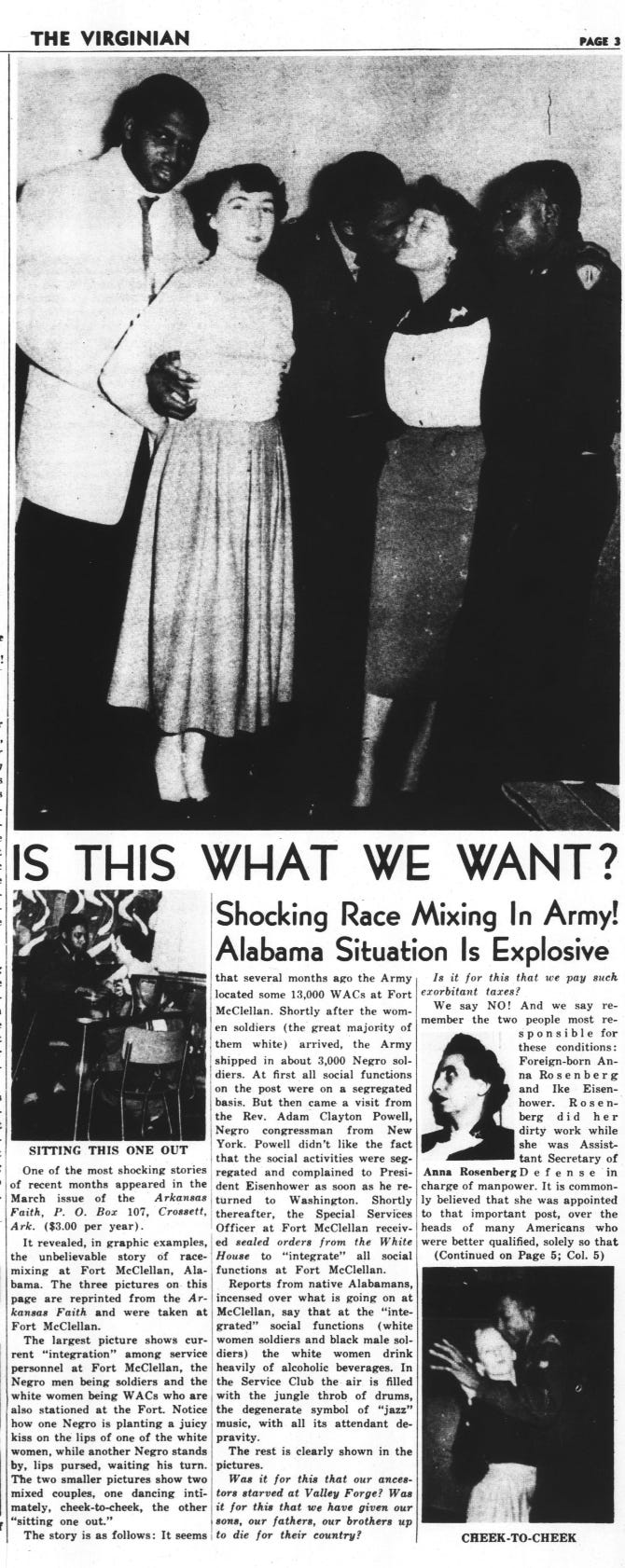
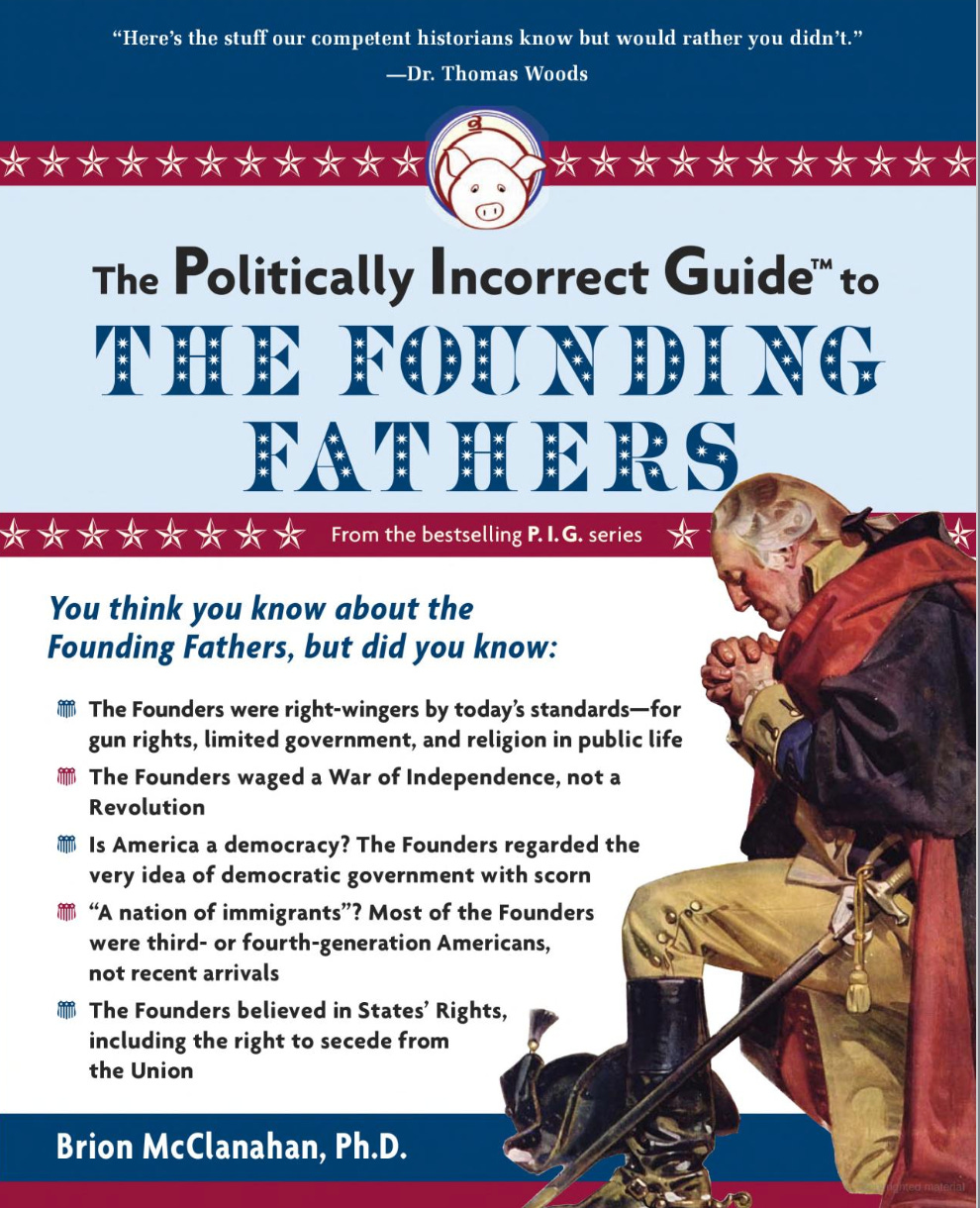
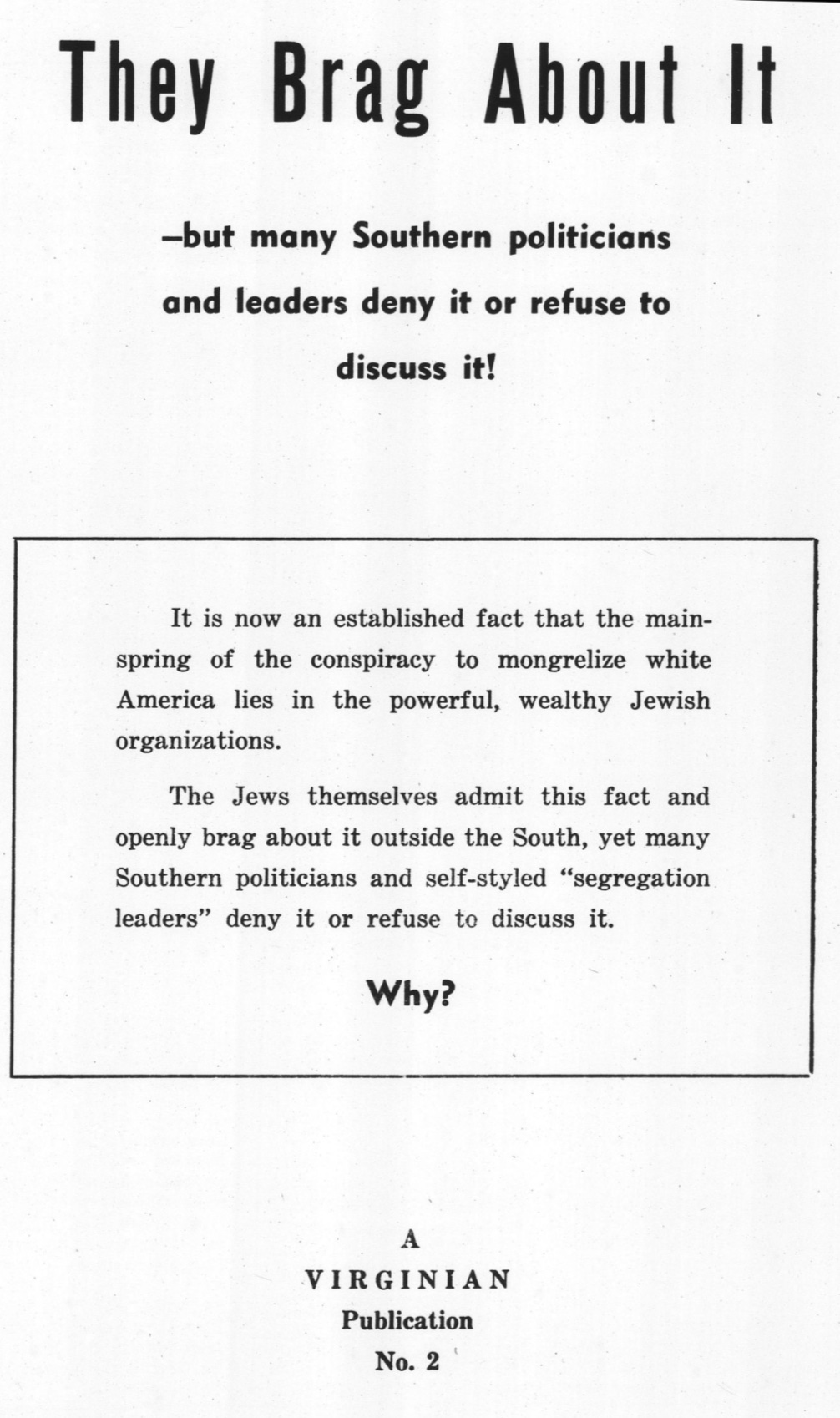
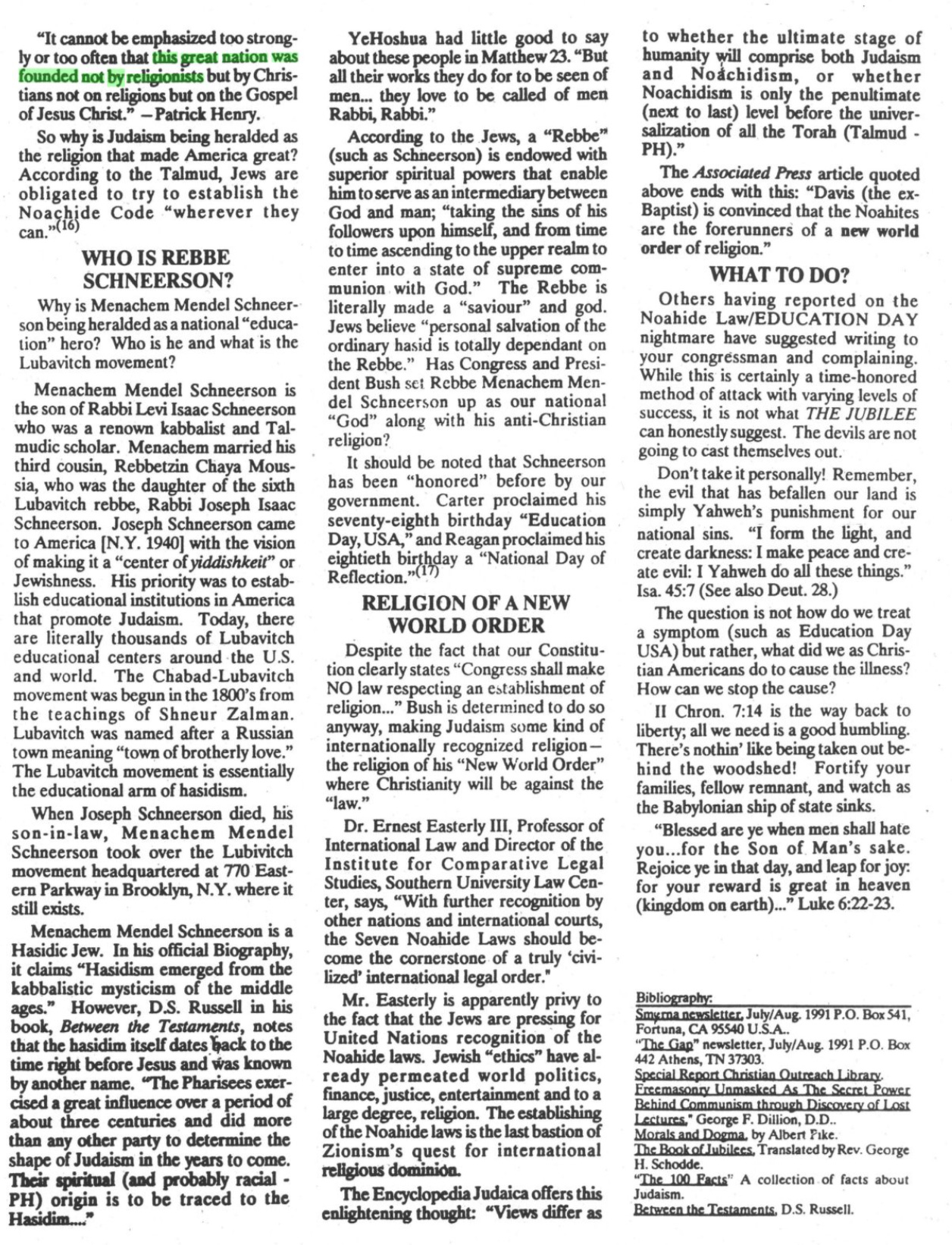
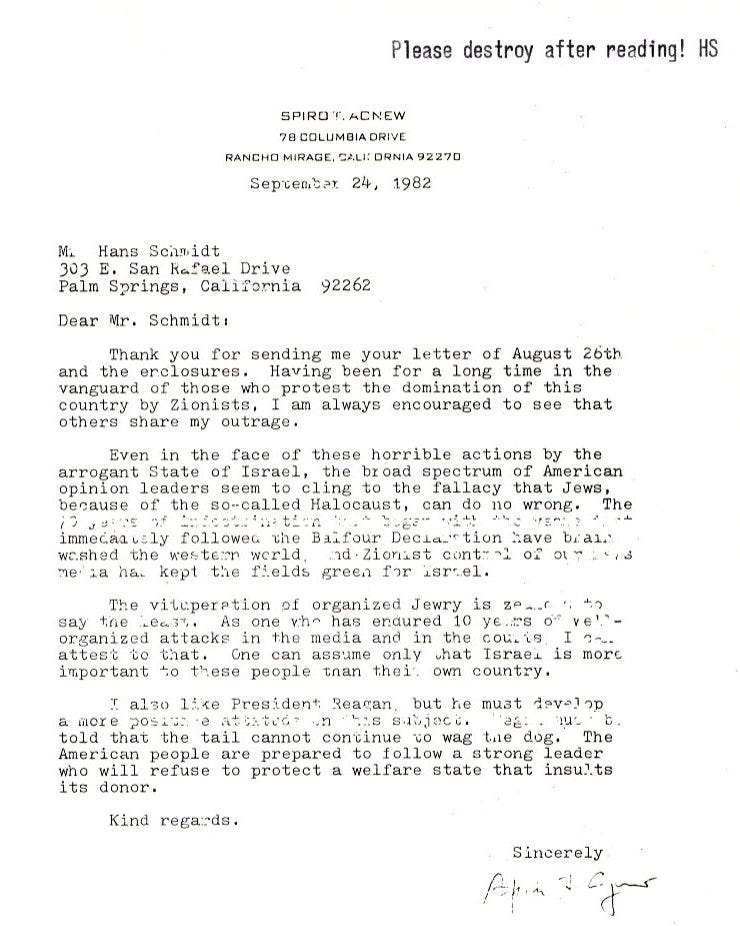
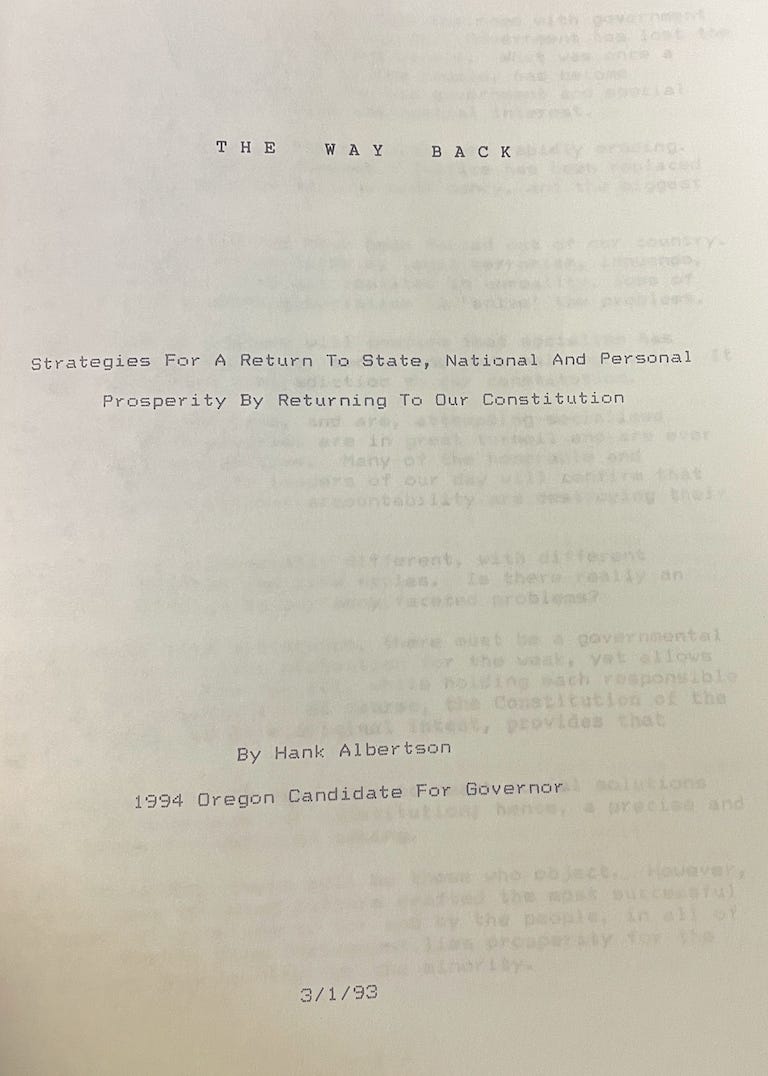
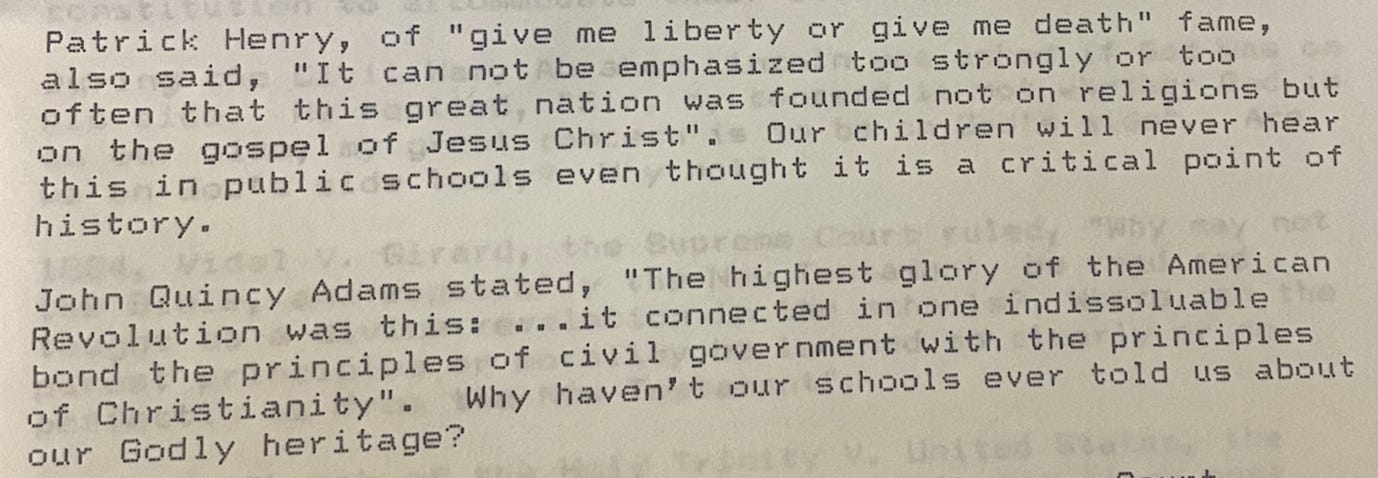

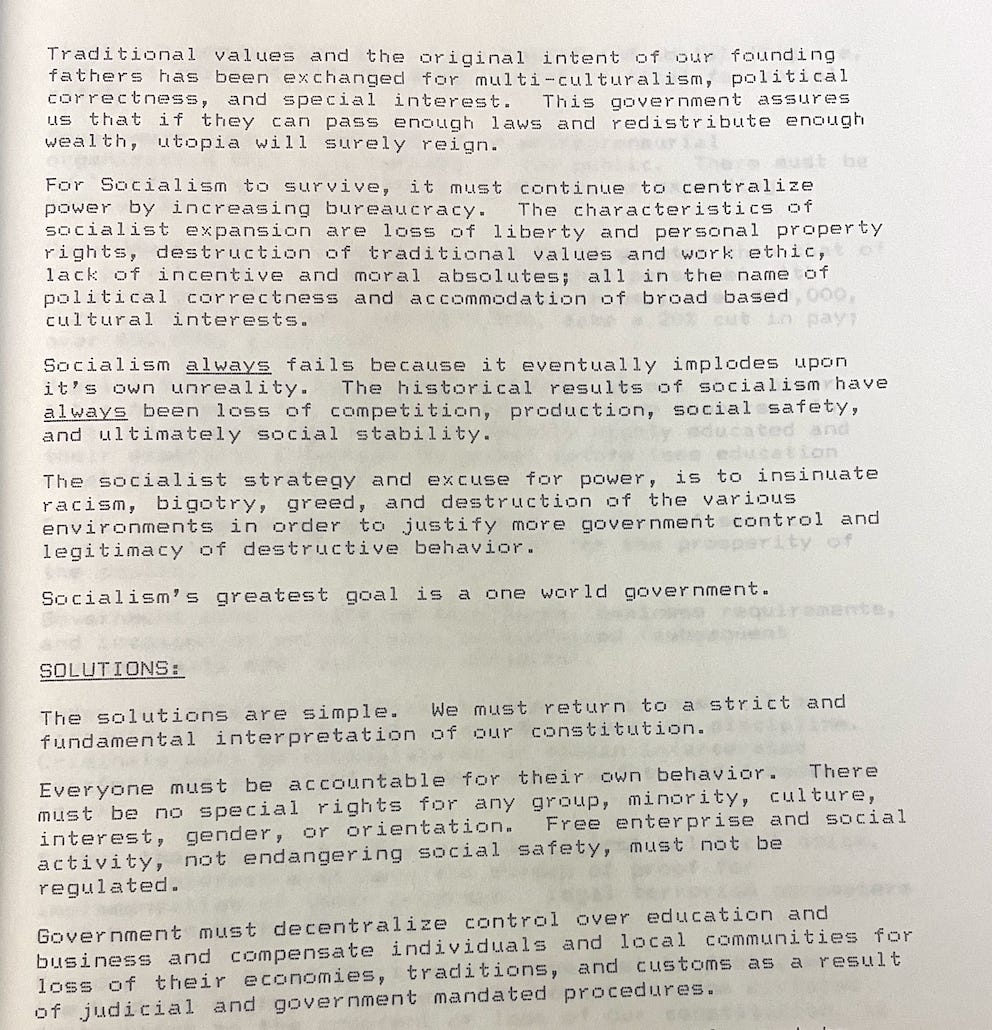
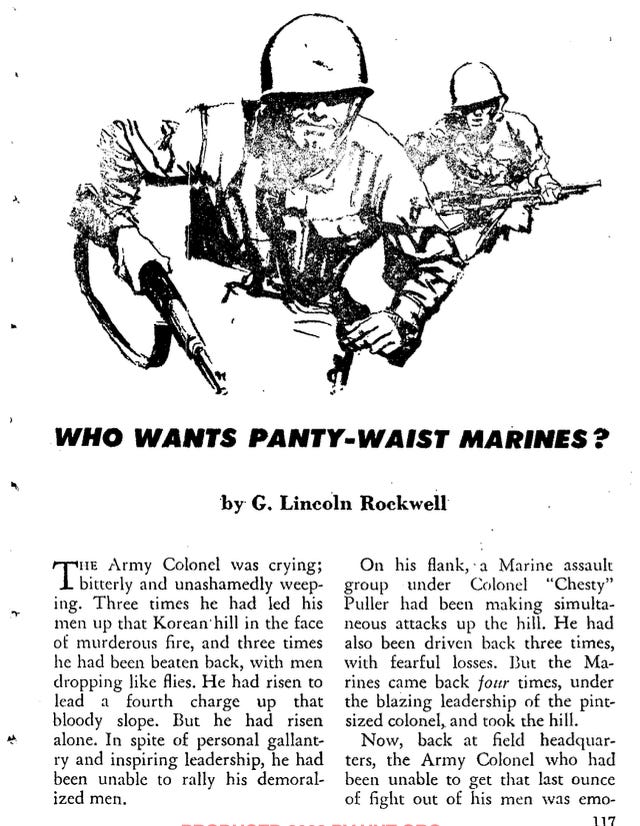

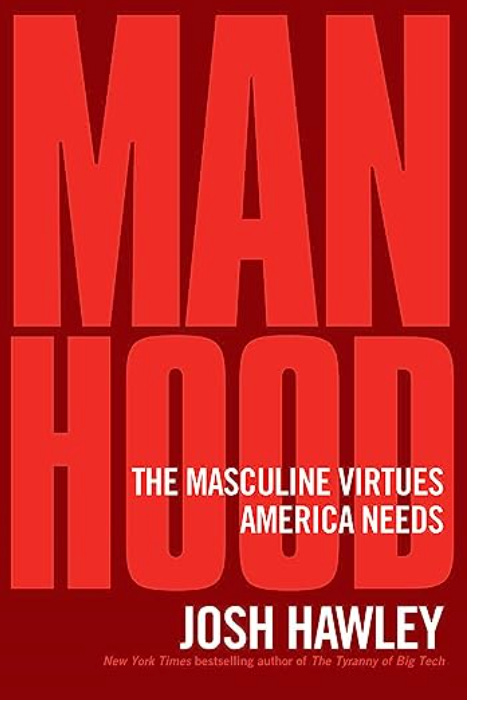
The VIRGINIAN was also an outlet for Roger Pearson's Northern League which took its racial views from Nazi Hans F.K. Guenther.
I have a lot of letters between William Stephenson, editor of THE VIRGINIAN, and Gerald L.K. Smith. Here's a sample of Stephenson to Smith, 12 June 1958:
"We will be very happy to run a full page ad for your announcing hte publication of "The International Jew." The cost for this will be a token charge of $1.00. We are glad to do what we can to promote the sale of such an important book. We appreciate your encouragement of our efforts here, and are, of course, very glad that the VIRGINIAN meets with your approval."
The VIRGINIAN came to an end when it, and the equally antisemitic GEORGIA TRIBUNE turned their mailing lists over to the National States Rights Party and subscribers began receiving the NSRP's publication THE THUNDERBOLT. The most notorious member of the NSRP was J.B. Stoner, who was convicted of the 1958 bombing of the Bethel Baptist Church in Birmingham, Alabama in 1980.